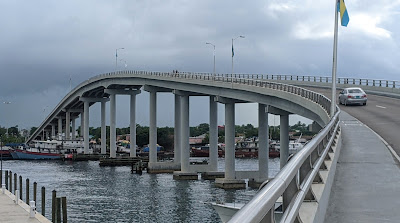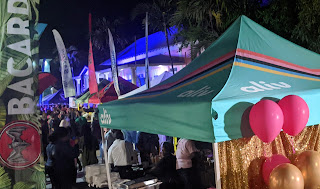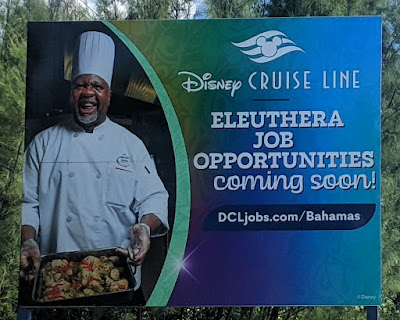A purported mentor once told me that probably I couldn't find a job in academics because my "writing is not very good."
'Tis the season when the law professor should be writing exams, yet is inundated and distracted by requests for recommendation letters to aid students on the career track. The distraction has caused me to ponder the futility of it all. Aside from the fact that my laboriously and meticulously drafted letters scarcely will be read, I'm saddened by how little a person can do to move the needle on ultimate potential in our supposed meritocracy.
In the 20-aughts, I was looking for my second job in academics, hoping to leave Arkansas and the curse of flyover country. My job search took five years. I lost count of how many applications I put in. It had to be more than there are law schools in the United States.
At some point, through a program I won't identify, as not to identify the person, I was paired with a mentor, an academic at a U.S. News "top 10" law school. After a couple of telephone counselings in which he told me nothing I did not know already, he suggested that maybe I needed to accept that I could not score a job because my "writing is not very good."
That was hurtful. Not because it wasn't a fair consideration to put on the table; it was. It was hurtful because it was his go-to conclusion, and rather the end point of the short arc that was his mentorship. There were countless other explanations for my struggle in the job market. He blew past all of them to rest on one: I suck.
Implicit in the suggestion was that he was at a top-10 school because he was so much better at the job than I. That's what hurt. And as I've matured in my career, I've come to realize how wrong he was.
I have a lot of experience now on the hiring side of hiring, almost three decades, at least in legal academics. And I've worked out a formula, though sometimes I tweak the apportionment, I feel like about describes the factors at play in getting a job, certainly in legal academics, but maybe anywhere:
- 60% privileges;
- 30% right-place-right-time; and
- 10% merit.
I'm not one of these "privilege walk" organizers who use loaded questions to make people feel guilty about socioeconomic advantages, and then to feel good about having felt guilty, and then relish telling everyone how privileged I now know I am, without actually doing anything to make the world better. But I do try to be conscious of privileges, especially the ones that I have and did nothing to earn.
I did not start at the bottom of the ladder. That I'm not a person of color, thus not subject to unfair biases manifesting as implicit assumptions about aptitude and potential, nor followed by security in stores and distrusting of police; that I went to K12 in reputable suburban school districts with dedicated teachers and was a child of two parents with college degrees: these factors have worked immeasurable benefits in my life, no thanks to anything I did.
I didn't start at the top, either. My divorced, usually single parents were college educated thanks to community-college access and the military. My family was the typical penniless-20th-century-immigrant story, and my parents and grandparents were victimized by ethnic discrimination with real socioeconomic consequences. I was able to go from public school to a first-rate undergrad with mostly private-schooled kids only because I earned a full scholarship.
On the inside of hiring in academics—I can tell another time cringe-worthy stories of before academics—I have seen it all, and candidate merit is only weakly indicative of outcome.
Because of the prevalence of liberal politics in academics—I do not suggest that preferences ordinarily run in these directions in the job market in general—I had a dean who announced the race (not mine) and gender (not mine) of an intended hire at the beginning of the search process; and I've had colleagues announce, also in advance of a search, that they would vote against any candidate of a certain race (mine) or gender (mine). I've likewise heard colleagues openly favor or disfavor candidates based on perceived sexual orientation (minority favored) and religion (belief disfavored). So to pretend that these factors are not in play, whether or not they are verbalized, would be willfully ignorant.
But race, gender, etc., are easy targets to exemplify pernicious discrimination. There are other factors that are more subtle, yet equally well effect socioeconomic exclusion, and thus indirectly race discrimination. And these factors are embraced by persons both liberally and conservatively minded.
When I was at a "tier 3" law school looking for a job, a colleague at a "tier 2" school—who knew I was looking for a job—asked me whether I might recommend anyone—not me—to fill an open position at her school. I was disqualified presumptively for the open position, because I did not do a judicial clerkship after law school. My colleague iterated this hiring expectation as if it were a self-evident sine qua non. She assumed I knew my place, and I was in it. One does not advance to tier 2 without a clerkship on the resume. "We prefer people who've clerked at the Supreme Court," she said breezily.
I didn't do a judicial clerkship after law school for various reasons. A big reason was that I was sick over the profound debt I had incurred paying for law school 100% with loans.
I had turned down full scholarships at two other law schools to pay full freight at a top 10, because I hoped the top 10 would open doors the others could not. I could not see, after law school, how I could take a job in which I would struggle to make monthly payments, or worse, postpone them, with interest accruing. For the same reason, I didn't go back to journalism after law school, which had been my plan. I also did not have anyone in law or legal academics to advise me on the value of a clerkship—an opportunity, perversely, that one never has again—for my later career.
I was the beneficiary of many privileges at that time in life. Not among them was the luxury of choosing a clerkship or any job because it would be a smart resume builder, rather than because it would pay my bills. Not among them was having anyone to model a career in legal academics, or tell me what to do to get there. And yet, with no undergrad debt, I already was much better off than most of the students I teach now. I did not yet have a family to take care of. I was able to put every spare dime from my attorney earnings into paying off my debt.
My top-10 choice paid off some, because I would not otherwise have scored my first job in academics. A key faculty player in hiring had gone to the same law school I did. The hiring school was in urgent need of an immediate start, and I was willing to quit my job and move halfway across the country at Christmas. The hiring school was especially vexed over poor student writing skills, and I was a former journalist and capable copy editor. There it is: 60% privileges, 30% right-place-right-time, and 10% merit.
Yet I would be limited thenceforth by not having clerked, and by other, similar factors. I never volunteered abroad, as many aspiring academics do. I wanted to—because of my family ties, a passport was a privilege I did have—but, again, I had to work 50 weeks per year to pay on my debt.
At my attorney job, I had little to no mentorship; it was all about billable hours. I had no role models to show me how to navigate in that world. I had no business contacts; no matter how hard I worked, I never would have made partner. The media lawyer I worked for when I started left for an in-house position after a year, and I was reassigned to the grind of mass-tort discovery.
In my first academic post, I had little to no mentorship in my professional development at my "tier 3" school. I had not even a scholarship requirement for my first years, when I was a contract instructor, not tenure track. I did not know to publish, what to publish, or where. I wrote and published only because I wanted to, about whatever I wanted. It was the law-professor equivalent of being a journalist; if you have writing in your heart, it's a compulsion.
I did not know that the choices I was making, from starting as an instructor rather than an assistant professor, to the lack of an overarching research agenda, to everything from subject matter to placement strategy to the titles of my articles: all was part of a portfolio that I had only one chance to do right. I didn't.
Sometimes a student comes to me and expresses a desire for an academic career. My heart breaks. I have a rehearsed presentation to explain, as gently as I can, that the student already is behind on that goal: by definition, as we are having the conversation at a "tier 4," or bottom tier, law school. An academic career probably is foreclosed because of "poor" choices the student already has made unwittingly, such as having a family and living on a budget.
Mostly, the track is foreclosed by circumstances beyond the student's control: Urban childhood. Weak K12. No jobs for youth. No college counseling. Ailing parents. Delayed higher education. Being the wrong race, ethnicity, religion, or sexual orientation and identity for whatever is in fashion.
Even the brightest and most determined candidate cannot cause 10% merit to control the outcome.
The "mentor" I mentioned at the top: I take nothing away from his merit. But does he appreciate why he is where he is? Does he think that when he submits an article for publication, its
merits are the principal driver of an offer? Does he think that when he
submits a job application, his hard work is the principal driver of an
invitation?
He's a white man who started adulthood before I and in the "Morning in America" Reagan heyday. I don't want to say what college he went to, but suffice to say, it's one you've heard of in connection with Presidents and Supreme Court Justices. Law school too. Maybe he was plucked from child labor in an Appalachian mine to be gifted with these opportunities, but odds are not. He then clerked for a federal appeals court, and then for the U.S. Supreme Court. He diversified the resume with a short stint abroad. He worked briefly in public and private sectors. He won a teaching fellowship in the top 10, and never worked lower: from there to tenure track, named professorship, center director, etc.
Brilliant bloke. 10%.
But not that brilliant. 60% privileges, 30% right-place-right-time.
I think my writing is very good.




















